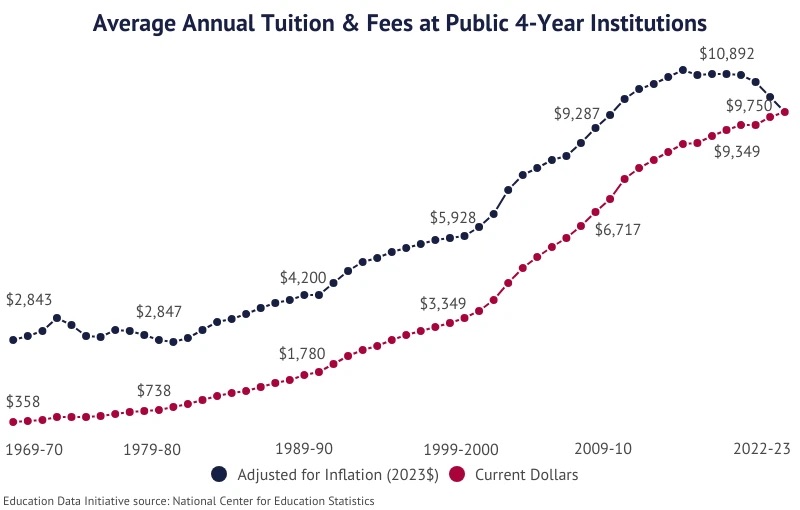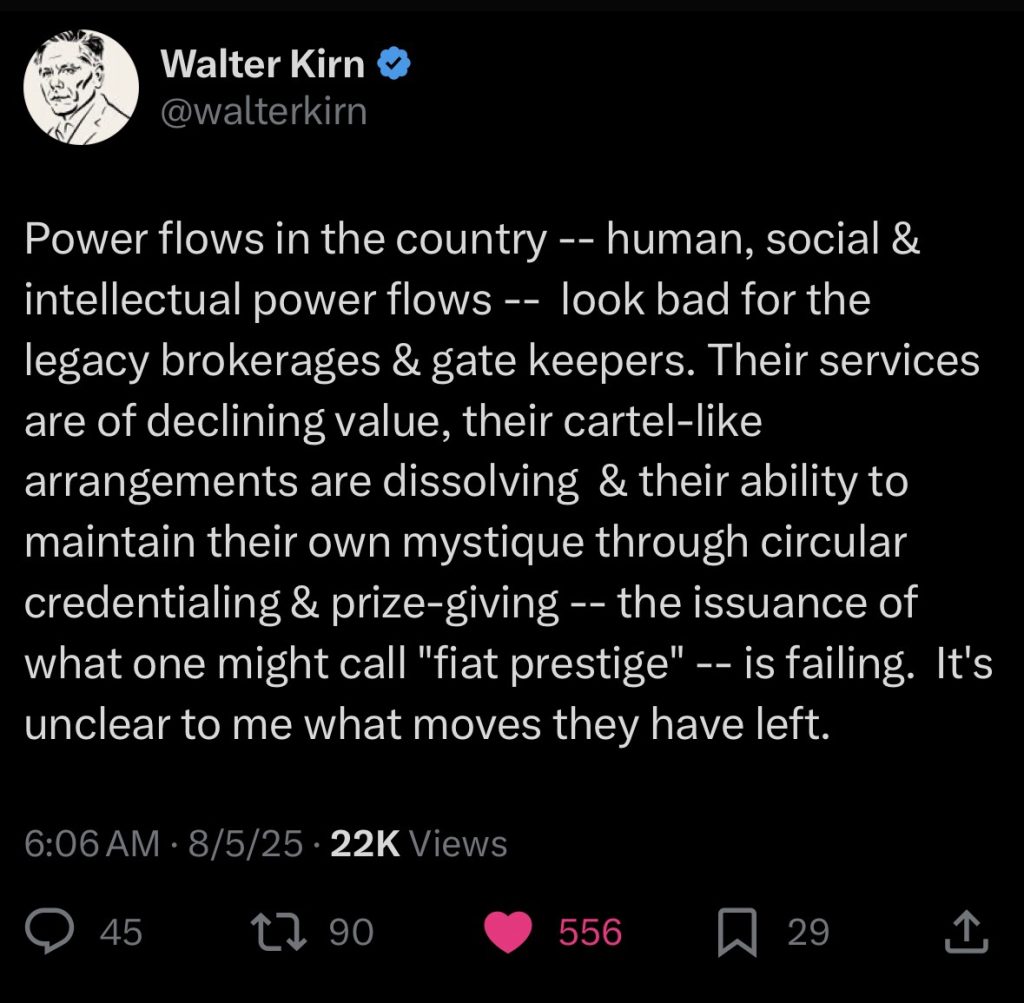America has been rejecting practical workforce training like apprenticeships for over a century. Our military nudged the enlisted into skills but it was access to university education that helped Americans climb the social ladder.
The Servicemen’s Readjustment Act of 1944 or as you probably know, the “the GI Bill” was so successful that by 1947, WWII veterans accounted for 50% of college enrollments.
Social mobility matters a lot to the mythos of America so it doesn’t surprise me that practical skills were not nearly so attractive once we made prestigious colleges more accessible.
When millennials were children the 1992 Higher Education Reauthorization Act (HEA92) made college loans available to all families, regardless of financial need.
And the trend in spending on education and the cost if higher education has been up and to the right ever since. Over the 59-year period from 1963 to 2022, college tuition increased nearly 300% when adjusted for inflation.

The effects of the cultural experiment in social mobility some call The Sort where children with good test scores were shuffled into universities and into the managerial class is driving spend and anxiety.
From Max Weber’s Bureaucratic Society of group status competition to Randy Collin’s work in the 70s on the rise of credentialism in the workplace, it seems as if modern industry drove a deep mimetic desire for prestigious university educations to stay ahead socially.
Having skills was not as important as being seen as having the right credentials. The old joke that Harvard launders the rich kids with the smart kids so no one knows who is who doesn’t seem so funny snore.
Last week a picture went viral of a table of Harvard and Stanford graduates in Silicon Valley (mostly Asian students) was all angst as their credentials mean something to them but not necessarily to employers or founders. So what is the point?
The data shows college education spending consistently outpaces inflation. But is it doomed to keep going up and up even if we are getting less from it? Walter Kirn had a turn of phrase in a tweet today I found apt. We have a problem with fiat prestige in America.

Inflated currency destroys value. Our Federal Reserve worries about being over a 2% inflation rate and yet we let it happen. So why aren’t we more concerned with fiat prestige and its credentialist inflationary pressures? Our system of social credibility is under significant pressure and if I were Harvard I’d be terrified of going fully Zimbabwe on my social capital.